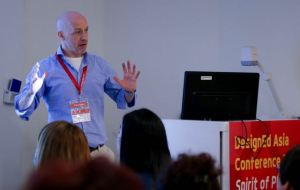In my presentation at BERA 2012 I started with the question: Is teaching still a profession? I asked this because having researched the professional identity of trainee teachers we were suddenly faced with the removal of the General Teaching Council, a new set of professional teaching standards and the removal of the requirements for Qualified Teacher Status in Free Schools and Academies.
Fast forward a year to the house of commons debate on 30th October 2013 which was: That this House endorses the view that in state funded schools teachers should be qualified or working towards qualified teacher status while they are teaching.
http://www.publications.parliament.uk/pa/cm201314/cmhansrd/cm131030/debtext/131030-0002.htm
Ultimately the debate seemed to be more about showboating and political manoeuvring that policy given that the decision had already been made a year to remove the requirement for QTS. However the showboating did reveal some interesting vignettes:
- The labour record of increased use of instructors and non-qualified teachers and their diversification of routes in to teaching did not give them the moral high ground in the debate.
- The move to removal of requirements for QTS is clearly at odds with the 2010 White Paper: “The first and most important, lesson is that no education system can be better than the quality of its teachers. The most successful countries…are those where teaching has the highest status as a profession’’.
- DfE say “teaching is a profession: not just a job anyone can do” (evidence to STRB paragraph 37) – which seems at odds with the policy.
- Common definitions of a profession indicate that they are synonymous with being paid and formal qualification.
The reality is that teaching is still is a profession given that the majority of teachers are qualified and paid. However more significantly is the continual shifting identity of teachers which includes:
- Professional identity of the teaching profession becoming “further fragmented” (Steele, et al, 2008).
- Blurring of the boundaries between home and school is occurring and awareness of transgression in these areas becomes increasingly complex.
- Teachers and parents become ‘co-producers’; as teachers work with parents and families to help them support their children’s development and learning.
- More difficult to identify precisely the particular role of the teacher and the specific nature of the teacher’s expertise and therefore their professional identity.
- Impact of changing expectations within the general public, who now increasingly expect more personalised attention and responsiveness from those accountable for providing public services
- Relying upon induction into the profession by senior and experienced colleagues as a reliable means of enculturation into professional norms may no longer be a reliable method, as experienced teachers themselves are emerging into newly formed identities.
- Consideration of do trainee teachers or those new to teaching embody the bland undifferentiated statements of the PPC Standards or understand professional boundaries and requirements?
From this three important points emerge:
- The removal of the GTCE meant the loss of an independent body to oversee the development of the profession. Cynically this could be one reason why one of the first acts of the Secretary of state was to remove the GTCE.
- The journey of a trainee teacher (and non QTS teacher) into becoming a professional and their vulnerability in relation to meeting professional expectations and standards remains unacknowledged, unclear and potentially problematic.
- The potential deregulation of the profession and increased diversity in relation to routes into teaching, diversity of schools and changing expectations and accountability of teachers adds further complexity in valuing, defining and supporting the emergent space of future professionals in relation to their Personal and Professional Conduct. This complexity adds to the vulnerability of those served by the profession and fails to sufficiently regulate the suitability, conduct and competence of those entering, within and those leaving the profession.
Given these scenarios presents new challenges but also opportunities to reconsider not just the “the possession of a single piece of paper” which the Secretary of state disparagingly refers to. Most importantly should be that we recognize the development period and space of those becoming professions in a more informed and systematic way.
At present a chasm exists, which is where much of the debate has been located, where the issue isn’t just about qualification but about embodiment and adherence to a set of professional principles, which need to be more explicitly articulated. At present the political showboating is merely a distraction from a genuine debate about how best to develop professional practice and what that practice should be.
